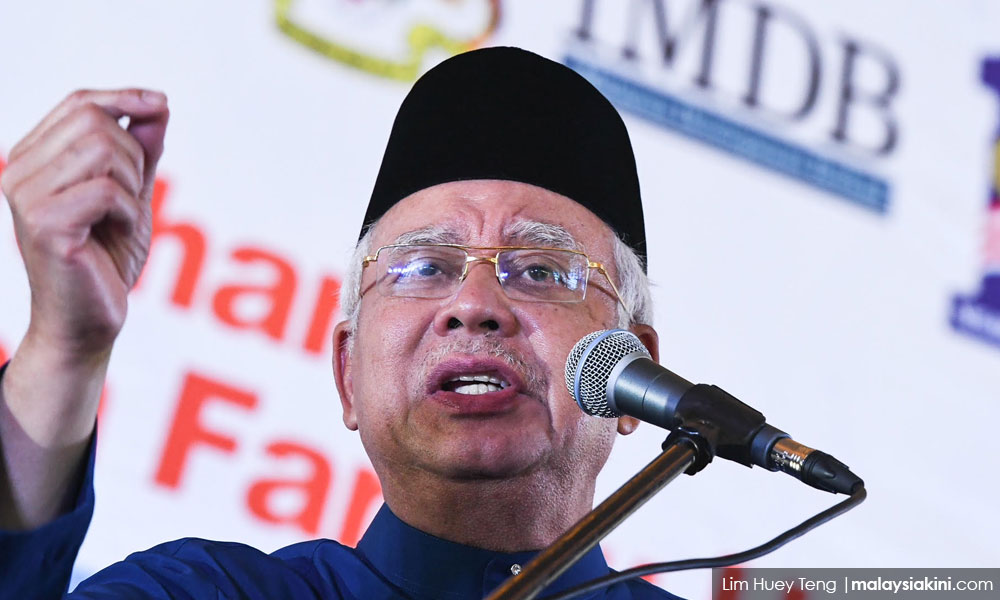
QUESTION TIME | Now that we have finally got rid of a kleptocratic government, we should think about what needs to be done to ensure that something like 1MDB never happens again.
That question is deeper than it seems, and the answer lies both in enforcing the laws that we have and throwing out others, so that there will always be room for legitimate debate and discourse, as well as openness and transparency in all aspects of government operations.
Also, there is a need to ensure the independence of all investigating, prosecuting and judicial authorities through appropriate legislation and clearly spelt out governance measures, so that the government cannot shut down investigations by making changes to appointments and get its own desired results.
That is the only way to ensure that the public is suddenly not taken by surprise when it turns out that the government has done something bad on the quiet, and using secrecy laws and government machinery to hide their tracks.
But why there seems to be a sudden reluctance in the new government to do so, in direct contradiction to what was promised in the manifesto, is something that needs to be highlighted and talked about.
Why do things like 1MDB happen? The simple answer to that: too much power concentrated in the hands of the prime minister and finance minister. This is a legacy issue starting from the May 13, 1969, racial riots following which the government obtained dictatorial powers through various laws, which included numerous amendments to the Federal Constitution.
The checks and balances within Umno to remove a prime minister disappeared after 1987, after Tengku Razaleigh Hamzah and Musa Hitam challenged Dr Mahathir Mohamad and Ghafar Baba for the leadership of Umno and failed. The new Umno formed by Mahathir made it virtually impossible to remove a sitting Umno president and therefore the prime minister.
Also, the prime minister has substantial powers under the law, which Najib Abdul Razak further strengthened through the introduction of more draconian legislation, which remains on the statute books.
That is why Najib could appoint himself finance minister, and through Minister of Finance Inc, completely control 1MDB and remove auditors who flagged dangers.
Transformation programmes for GLCs were not imposed at all for 1MDB. Eventually, the erosion of all governance measures as well as investigative, prosecution and judicial mechanisms, among others, and the control of these by the prime minister made kleptocracy an easy matter to execute.
Najib, with all the powers he had, could still have suppressed investigation and prosecution with respect to 1MDB if he had won power in the last general election.
What's slowing down reforms?
Following from this, it is clear that two things are vital.
First, to follow the law closely to prosecute all offences without favour or exception. Secondly, to junk the laws which suppress free debate, and introduce new laws which force the government to disclose all important information to the public – except those which are vital for national security in terms of defending the country from external threats.
We have to remove certain laws and institute others which make it impossible for leaders to become despotic. But I worry about the Harapan government’s slow pace of reform, especially with respect to the legislative changes it had promised.
If he wanted to, Mahathir could still use the laws on the statute books to become a dictator. Why is it taking so long, and why are reforms being stalled for no apparent reason?
Remember that the auditor-general was investigating 1MDB in 2015. If Najib had not used the Official Secrets Act 1972 to classify the report as a secret, the story of 1MDB would have come out earlier, and would have shown beyond any doubt that as much as US$7 billion was missing from the state investment firm.
That may have resulted in Najib’s removal at least two years before GE15, and prevented the deleterious effects of using overpriced contracts to fill the 1MDB hole.
In my article last week, I questioned why the PwC situation audit on 1MDB that began two weeks after the May 9 polls has still not been released. I had received information that it had already been given to finance minister Lim Guan Eng well over a month ago, on Aug 6.
Why has Lim thought fit not to release even this, when he said earlier the public has a right to know how big the 1MDB hole really is? There is nothing much he has to do besides release it, in full. Why the reluctance?
Disturbingly, Mahathir now says there are no plans to dismantle the OSA, and advised the public to elect people who will follow the law instead. Is he the person who is likely to lead legislative reform in the country? Is he himself reformed?
Without legislative change to limit the powers of the prime minister, 1MDB can happen again. Prime ministerial prerogative needs to be curtailed by greater consensus and openness in decision making – this is what Harapan appeared to promise in the overall manifesto, and seems to be balking at now.
Why? Can it get back on the right path? Is Mahathir really the person to lead reform? Does he indeed believe in it?
The public needs to continue to demand that all repressive laws be removed from the statute books as promised, and that new legislation is introduced that will forever guarantee the independence of investigating authorities, the Attorney-General’s Chambers and the judiciary.
That is the starting point of the reform process, and it will ensure that it cannot be hijacked by anyone in future.
The above is adapted from P GUNASEGARAM’s address at the public launch of his book1MDB: The Scandal that Brought Down a Government on Sept 29. Email: t.p.guna@gmail.com. -Mkini


No comments:
Post a Comment
Note: Only a member of this blog may post a comment.